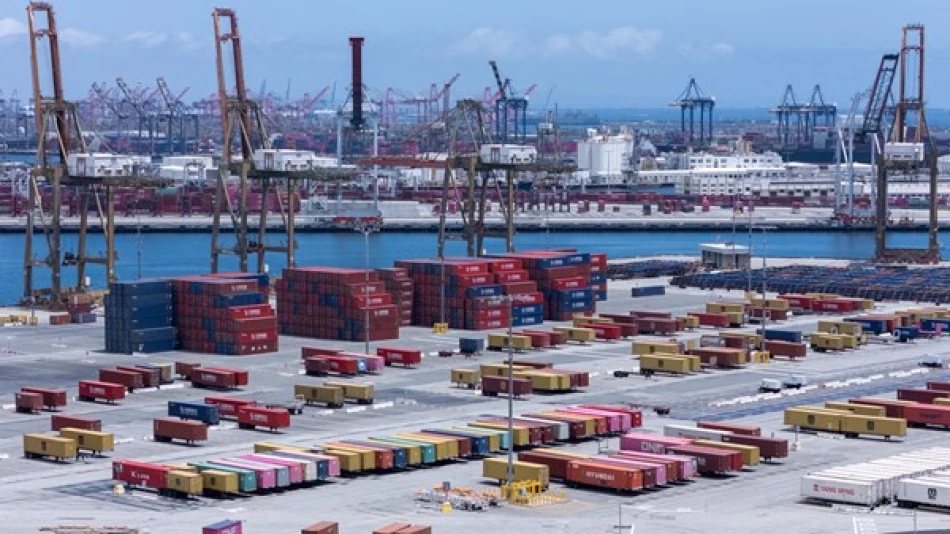
US Official Issues Statement on Implementing Tariffs: Insights for Trade and Economic Policy
Trump's August Trade Deadline Holds Firm as EU Faces 30% Tariff Threat
US Commerce Secretary Howard Lutnick has delivered an uncompromising message to America's trading partners: the August 1st deadline for sweeping new tariffs is non-negotiable. With the European Union facing a potential 30% levy on its exports, Trump's high-stakes trade gambit enters its final phase as he meets with EU Commission President Ursula von der Leyen in Scotland to hammer out a last-minute deal.
No Extensions, No Grace Periods
Speaking to Fox News on Sunday, Lutnick left no room for interpretation regarding the administration's resolve. "There are no extensions and no grace periods. The tariffs are set for August 1st. They will be implemented. Customs will start collecting money," he declared.
This hardline stance represents a calculated escalation in Trump's trade strategy, designed to force reluctant partners into bilateral agreements on American terms. The approach mirrors tactics used during his first presidency, when similar deadline pressure yielded renegotiated deals with Mexico, Canada, and China.
Europe in the Crosshairs
The European Union faces the steepest potential penalties, with Trump threatening a crushing 30% tariff on imports from the 27-nation bloc if negotiations collapse. This would represent one of the most severe trade actions against a major economic partner since the Smoot-Hawley tariffs of the 1930s.
Economic Stakes for Both Sides
For European exporters, particularly in automotive, machinery, and luxury goods sectors, a 30% tariff would effectively price many products out of the American market. German automakers like BMW and Mercedes-Benz, which have invested billions in US manufacturing, could see their European imports become uncompetitive overnight.
The US economy wouldn't emerge unscathed. American consumers would face higher prices on European wines, cheeses, pharmaceuticals, and industrial equipment, while retaliatory measures from Brussels could target key US export sectors including agriculture and technology.
Scotland Summit: Last-Chance Diplomacy
Trump's meeting with von der Leyen in Scotland carries enormous significance beyond its diplomatic protocol. The timing suggests both sides recognize the mutual economic damage that would result from a full-scale trade war, yet neither appears willing to show weakness in the final hours.
Von der Leyen arrives with limited room for maneuver, constrained by the need to maintain unity among 27 member states with divergent economic interests. Trump, meanwhile, faces pressure from American business groups who fear supply chain disruptions and higher input costs.
Market Implications and Global Ripple Effects
Financial markets have largely priced in some form of trade friction, but a complete breakdown in US-EU negotiations could trigger significant volatility. The euro has already weakened against the dollar in anticipation of trade tensions, while European export-dependent stocks have underperformed.
Beyond immediate market impacts, Trump's deadline strategy sends a clear signal to other trading partners including Japan, South Korea, and the UK that Washington's appetite for multilateral trade arrangements has diminished sharply. This shift toward bilateral deal-making represents a fundamental restructuring of global trade relationships established over decades.
Historical Context and Strategic Calculations
Trump's approach echoes the "America First" trade philosophy that defined his previous term, but with greater urgency and higher stakes. Unlike his earlier trade wars, which primarily targeted China, this campaign simultaneously pressures multiple allies and competitors.
The August 1st deadline also serves domestic political purposes, demonstrating decisive action on trade promises while potentially delivering economic wins before the next election cycle. However, the strategy carries significant risks if trading partners call Trump's bluff or if economic disruption outweighs any negotiating advantages gained.
Most Viewed News

 Layla Al Mansoori
Layla Al Mansoori






